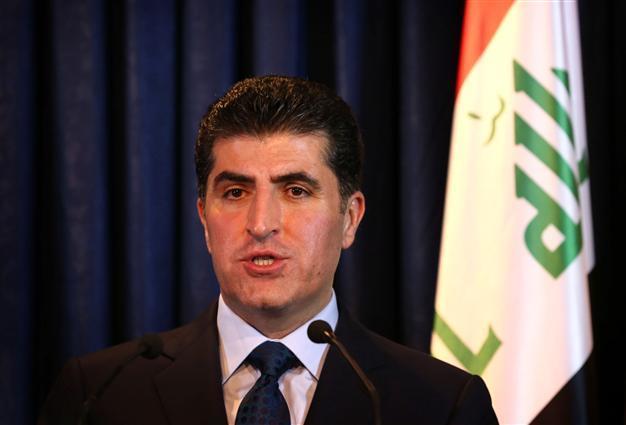Kurds say Baghdad has failed to respect oil deal
ARBIL-Agence France-Presse

Iraqi Kurdish premier Nechirvan Barzani. AFP Photo
Iraqi Kurdish premier Nechirvan Barzani on late Feb. 16 accused the Baghdad government of failing to give his autonomous Kurdish region its share of oil revenues despite a deal signed in December.Under the deal that should have taken effect from the start of the year, 250,000 barrels per day of oil are to be exported from the autonomous region and another 300,000 bpd from the disputed province of Kirkuk.
Oil from the Kurdish region or claimed by its leadership would be shipped out via Kurdish pipelines but through the federal oil company.
In return, Baghdad would release the regional government’s share of national revenue, which had been frozen for more than a year in retaliation for Arbil’s efforts to export oil unilaterally.
Barzani said that in return for the export of 550,000 bpd, the Kurdish region was due to get “1.2 trillion dinars ($1 billion) from Baghdad,” each month.
He said the December agreement, which had been seen as a breakthrough in resolving longstanding disputes over oil and budget, “currently has no meaning.”
“Baghdad has no money to give... We made a deal with a state that was originally broke, and Iraq today is broke,” he told a news conference in the Kurdish capital.
Barzani earlier led a delegation to Baghdad for talks with Iraqi Prime Minister Haider al-Abadi.
“We invited the prime minister to visit Kurdistan, and he accepted the invitation and promised to come,” said Barzani without giving a date.
Abadi’s office said in a statement that the prime minister and the Kurdish delegation discussed how to resolve “pending issues ... within the framework of the constitution”.
The two sides also discussed “the economic challenges that are facing the country,” Abadi said in the statement.
“Iraq is facing many challenges including economic ones due to falling oil prices and the effect they have on the budget,” he added.
Abadi said his government was “committed” to the oil deal with the Kurds, echoing Barzani who also insisted he wanted to see the problem resolved.
Baghdad is almost entirely dependent on oil revenues and Arbil is in desperate need of cash to pay its civil servants and shore up its security.
Falling oil prices have hit Iraq hard at a time when its expenditures have increased due to the battle against the Islamic State jihadist group which overran large areas of the country last year.
At the end of January, parliament approved a $99.6 billion budget, down from $102.5 billion that had been proposed by the cabinet, due to low oil prices.
















